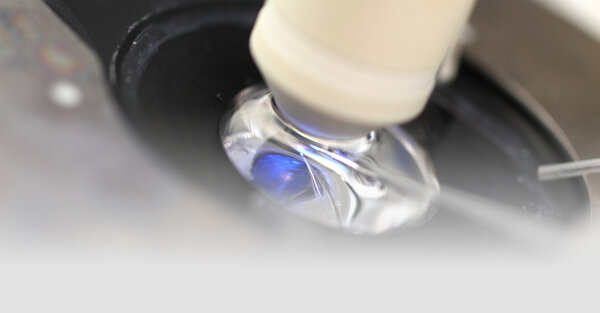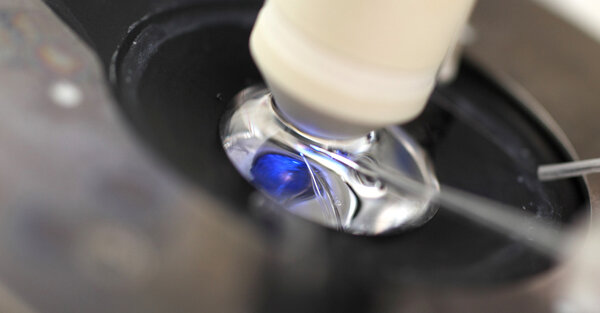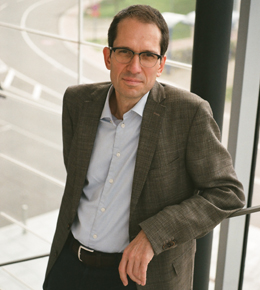

About us
The department was established as part of the consistent continuation of the departmental system, with its main focus on epileptology. Additional key areas include neuromuscular disorders and headache syndromes. Its clinical responsibilities cover 22 inpatient beds and 5 specialized outpatient clinics. Together with other clinical departments, it provides care for all neurological patients at the University Hospital Tübingen (UKT).
Epilepsy patients are treated in an Epilepsy Center that has been certified by the German Society for Epileptology in cooperation with the Departments of Neuropediatrics, Neurosurgery, and Neuroradiology.
This includes inpatient acute care for epileptic seizures and status epilepticus, as well as complex epilepsy treatment for severe cases involving frequent seizures or multiple combination therapies. In collaboration with the Department of Neurosurgery, the unit has 5 video-EEG monitoring beds for differential diagnosis and presurgical epilepsy assessment.
Epilepsy surgery and brain stimulation procedures are performed in cooperation with the Department of Neurosurgery. Complex pain management for patients with chronic, neurologically caused pain is carried out in collaboration with the Department of Anesthesiology. The specialized outpatient clinics focus on the above-mentioned topics, treating primarily complex cases and addressing specific questions such as advanced diagnostic evaluations, combination drug therapies, pregnancy under medication, or genetic aspects. These outpatient clinics also serve as contact points for patients with ion channel disorders and other rare, genetically determined paroxysmal conditions.
Research Focus
The goal of the department’s research is to elucidate the molecular mechanisms of primarily genetically determined neurological disorders associated with disturbed neuronal excitability, to characterize their clinical manifestations for differential diagnosis, and to develop targeted new therapies. For this purpose, well-defined cohorts of patients with epilepsy, migraine, and related disorders are recruited, genetic defects are identified using modern sequencing technologies, and their functional consequences are investigated.
The mechanisms of neuronal hyperexcitability are characterized at the molecular, cellular, and network levels in both non-neuronal and neuronal expression systems, including induced pluripotent stem cells and genetically modified mouse models (Hedrich et al. J Neurosci 2014; Wolff et al. Brain 2017; Rosa et al. Neurobiol Dis 2025). The establishment of national, European, and international networks with large patient cohorts also plays an important role in identifying new disease genes and genetic risk factors (Schubert et al. Nat Genet 2014; Syrbe et al. Nat Genet 2015; ILAE Consortium Nat Genet 2023; Epi25 Collaborative Nat Neurosci 2024).
Such discoveries have already led to new, individualized therapeutic approaches, such as the ketogenic diet for glucose transporter defects or the targeted modulation of Na⁺ or K⁺ channels in epileptic encephalopathies. The early detection of genetic defects is therefore becoming increasingly important for therapy, especially in patients with accompanying developmental disorders.


Hertie Center of Neurology
Hertie Institute for Clinical Brain Research
Department Neurology and Epileptology
Hoppe-Seyler-Straße 3
72076 Tübingen
Phone: +49 (0)7071 29-80442
Fax: +49 (0)7071 29-4488
Sabrina Kreiser
Yvonne Brändle
Phone: +49 (0)7071 29-80442
Fax: +49 (0)7071 29-4488
sekretariatne5.HL@med.uni-tuebingen.de
Heidrun Löffler
Phone: +49 (0)7071 29-81922
heidi.loeffler@medizin.uni-tuebingen.de







